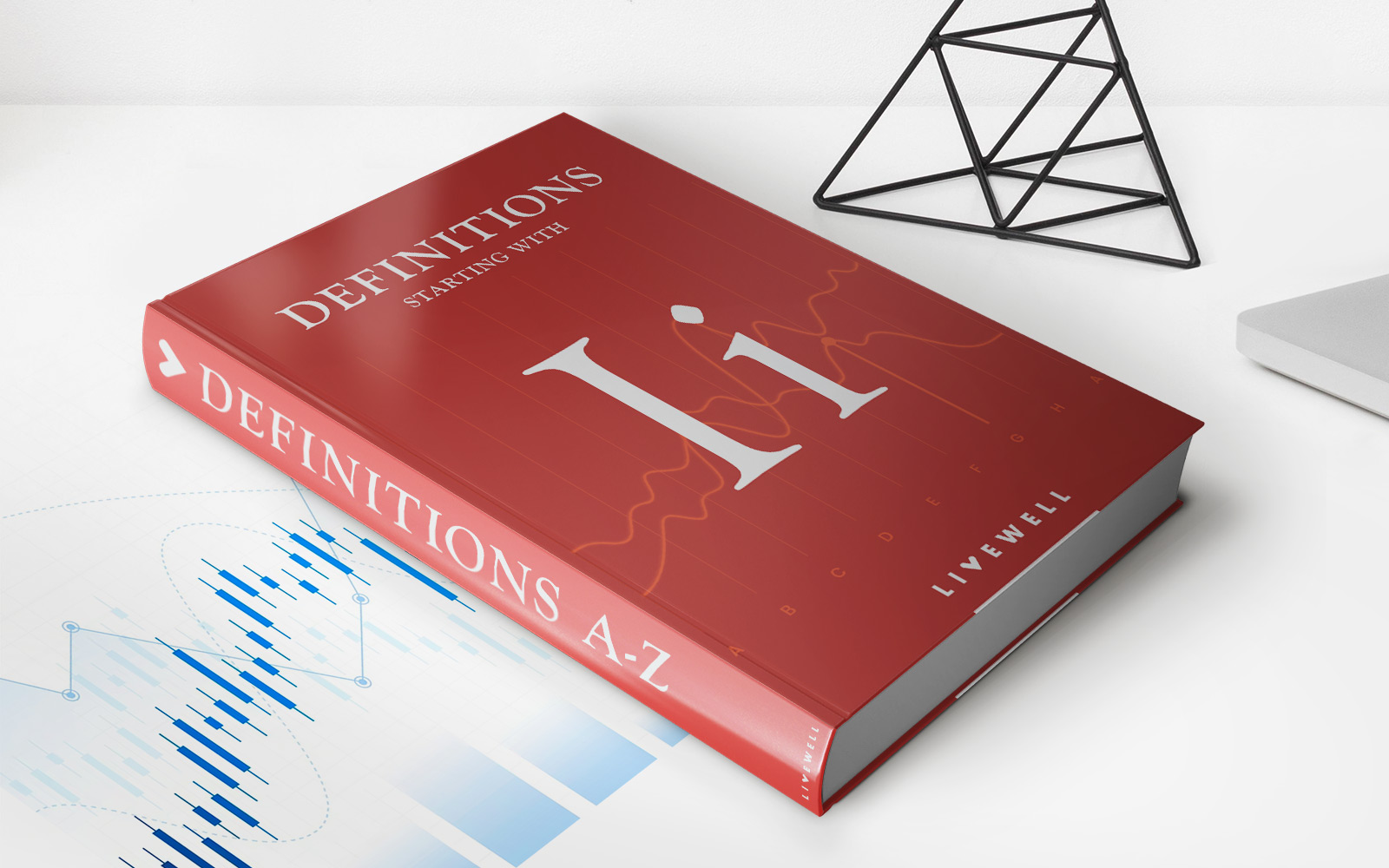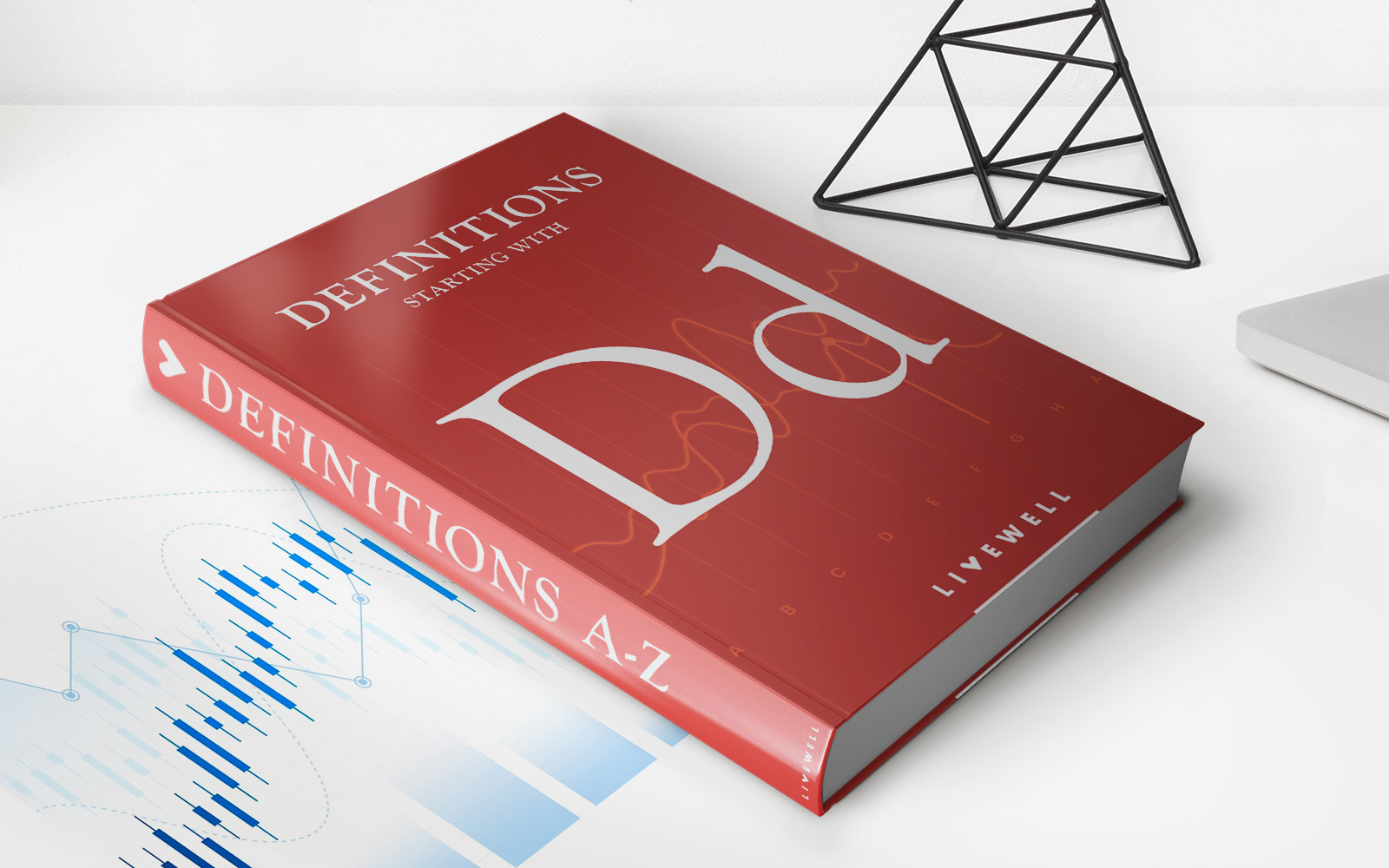

Finance
What Happens If You Don’t Have Life Insurance?
Published: October 15, 2023
Find out the financial consequences of not having life insurance, and why it's crucial for protecting your loved ones and their future.
(Many of the links in this article redirect to a specific reviewed product. Your purchase of these products through affiliate links helps to generate commission for LiveWell, at no extra cost. Learn more)
Table of Contents
Introduction
Life insurance is a crucial financial tool that provides protection and peace of mind to individuals and their loved ones. It serves as a safety net by providing a financial cushion in the event of an untimely death. However, many people do not fully understand the importance of having life insurance or the potential consequences of not having it.
In this article, we will explore what happens if you don’t have life insurance and the potential financial implications for you and your loved ones. From the burden of debt and expenses to the lack of financial support for your family, not having life insurance can leave your loved ones vulnerable and potentially struggling to cope with the financial aftermath of your passing.
While the thought of discussing life insurance and its consequences may seem morbid or uncomfortable, it is a necessary conversation to have. Understanding the risks and realities of not having life insurance can help you make informed decisions about your financial future and the well-being of your family.
Now, let’s dive deeper and explore the potential consequences of not having life insurance.
Financial Protection
One of the primary reasons for having life insurance is to provide financial protection for your loved ones in the event of your death. If you don’t have life insurance, your family may face significant financial challenges and uncertainty.
Life insurance can help replace your income and provide a financial safety net for your family. It can help cover daily living expenses, mortgage or rent payments, education expenses, and other financial obligations. Without this financial protection, your family may struggle to maintain their standard of living and meet their financial needs.
Furthermore, life insurance can help pay off outstanding debts and loans, such as a mortgage, credit card debts, or car loans. If you pass away without life insurance, these debts may become a burden on your family, who may be left struggling to pay them off.
Having life insurance can also provide protection for your business and partners. It can help cover business debts, provide funds for the continuation of the business, and ensure a smooth transition of ownership.
Overall, life insurance provides a crucial financial safety net, ensuring that your loved ones are taken care of financially in your absence. By not having life insurance, you are jeopardizing their financial stability and leaving them vulnerable to potential financial hardship.
Burden on Loved Ones
Not having life insurance can place a significant burden on your loved ones after your passing. Losing a loved one is already emotionally challenging, and adding financial stress to the equation can make the situation even more difficult to navigate.
Without life insurance, your family may be left with limited or no financial resources to cover expenses such as funeral costs, medical bills, or outstanding debts. They may have to rely on their own savings, sell assets, or even take on additional debt to cover these expenses.
Moreover, the loss of your income can have a profound impact on your family’s financial stability. If you were the primary breadwinner, your absence can leave a significant financial void. Your loved ones may struggle to meet their basic needs, such as food, housing, and education, without the financial support you would have provided through life insurance.
In addition, if you have dependents such as children or elderly parents, the absence of life insurance can hinder their ability to maintain their quality of life. It may limit their access to healthcare, education, or other essential resources that were previously supported by your income.
By not having life insurance, you place the burden of financial responsibility on your loved ones during an already challenging time. This can lead to unnecessary stress, strained relationships, and potential financial hardship, impacting their future financial well-being.
Having life insurance ensures that your loved ones are not left to bear the financial burden alone. It provides them with the necessary financial support to navigate through a difficult period and maintain their financial stability.
Debt and Expenses
Not having life insurance can leave your loved ones with the burden of your outstanding debts and expenses. When you pass away, any debts you leave behind may become the responsibility of your surviving family members.
Mortgages, car loans, credit card debts, and personal loans are just a few examples of the financial obligations that can be left behind. Without adequate life insurance coverage, your family may struggle to pay off these debts, potentially leading to financial strain and even foreclosure or repossession of assets.
In addition to debts, there are also immediate expenses that arise after a person’s passing. Funeral costs, for instance, can be significant and need to be paid promptly. Without life insurance, your family may be forced to pay for these expenses using whatever resources they have available, adding to their financial burden during an already difficult time.
Moreover, if you have a co-signed loan or shared financial obligations with a spouse or business partner, not having life insurance can leave them solely responsible for those debts. This can result in financial hardships and strain relationships.
By having life insurance, you can ensure that your debts and immediate expenses are covered, relieving your loved ones of these financial burdens. It provides them with the necessary funds to pay off debts and cover immediate expenses, allowing them to move forward without the added stress of financial obligations.
Funeral Costs
Funeral costs can be a significant financial burden for your loved ones if you don’t have life insurance. Planning a funeral involves various expenses, including funeral home services, casket or urn costs, transportation, burial or cremation fees, and other related expenses.
Without life insurance coverage, your family may be left scrambling to come up with the necessary funds to cover these expenses. They may have to dip into their savings or take on additional debt, adding another layer of financial stress during an already difficult time.
Furthermore, funeral costs can vary depending on personal preferences and the location of the services. It’s important to consider that these expenses can quickly accumulate, potentially leaving your loved ones with a significant financial burden that they may not be prepared to handle.
By having life insurance, you can take the financial burden off your loved ones when it comes to funeral costs. Life insurance proceeds can be used to cover funeral expenses, ensuring that your family can give you a proper farewell without facing financial hardship.
Not only does life insurance provide financial relief, but it also allows your loved ones to focus on grieving and honoring your memory, rather than worrying about the costs associated with end-of-life arrangements.
Loss of Income
One significant consequence of not having life insurance is the potential loss of income for your loved ones. If you are the primary earner in your family, your sudden passing can leave your dependents without a stable source of income.
This loss of income can have a ripple effect on your family’s financial well-being. It may make it difficult for them to cover everyday expenses, such as housing, utilities, groceries, and transportation. They may also struggle to maintain their current standard of living or save for future goals.
Moreover, the loss of income can impact your family’s long-term financial stability and retirement plans. Without your income, your loved ones may have to dip into savings or retirement accounts to make ends meet, depleting their financial resources and potentially jeopardizing their future financial security.
By having life insurance, you can ensure that your loved ones are still provided for financially even if you are no longer there to support them. Life insurance payouts can help replace the lost income, allowing your family to continue meeting their financial needs and maintaining their lifestyle.
Life insurance can act as a safety net, providing financial stability during a challenging period and helping your family adjust to their new financial circumstances. It offers peace of mind, knowing that your loved ones will have the means to support themselves and pursue their future goals, despite the potential loss of your income.
Inadequate Coverage from Employer
Many individuals rely on life insurance coverage provided by their employers as part of their employee benefits package. While employer-provided life insurance can offer some level of financial protection, it may not be sufficient to meet your family’s needs in the event of your passing.
Employer-provided life insurance policies typically have coverage limits that may not adequately reflect your financial responsibilities or the needs of your loved ones. In some cases, this coverage may only be a multiple of your annual salary, which may fall short of providing long-term financial security for your family.
Additionally, employer-provided life insurance is often tied to your employment. If you were to leave your job or the policy is terminated, you would lose this coverage, leaving your family without any financial protection.
It’s important to assess the adequacy of your employer-provided life insurance coverage and consider obtaining additional coverage through an individual life insurance policy. This way, you can tailor the coverage to meet your specific financial obligations and ensure that your loved ones are well-protected.
By having your own individual life insurance policy, you have control over the coverage amount and can choose a policy that aligns with your unique circumstances. This gives you the flexibility to increase or adjust your coverage based on changing needs, such as marriage, having children, or purchasing a home.
Ultimately, relying solely on employer-provided life insurance can leave you and your loved ones vulnerable to inadequate coverage. Supplementing this coverage with an individual life insurance policy ensures that you have the necessary financial protection to secure your family’s future, regardless of your employment status.
Medical Expenses
Not having life insurance can leave your loved ones with the burden of any outstanding medical expenses you may leave behind after your passing. Medical treatments, hospital stays, and ongoing healthcare costs can be financially overwhelming, especially if your family does not have the means to cover them.
Even if you have health insurance, there may still be out-of-pocket expenses, deductibles, or co-pays that need to be paid. Additionally, certain medical conditions or treatments may not be fully covered by insurance, resulting in significant expenses for your family to bear.
If your passing is a result of a long-term illness or a sudden medical emergency, the costs associated with the treatment and care you received can quickly add up. Your family may find themselves grappling with large medical bills, potentially leading to financial stress or even bankruptcy.
Having life insurance can help mitigate the financial impact of medical expenses. The payout from a life insurance policy can be used to cover any outstanding medical bills, ensuring that your family is not burdened with debt in addition to the emotional loss they are already experiencing.
By having adequate life insurance coverage, you can provide your loved ones with the financial support they may need to pay for medical expenses and ensure that they have access to the necessary healthcare without facing financial hardship.
It is important to remember that life insurance is not a substitute for health insurance. It is crucial to have both types of coverage to protect yourself and your loved ones from the financial costs associated with unexpected medical events.
Estate Planning
Life insurance plays a significant role in estate planning, especially if you have assets that you want to pass down to your loved ones efficiently and without financial strain. Without adequate life insurance, your estate may be subject to various taxes, probate fees, and legal expenses that can erode its value.
By incorporating life insurance into your estate planning, you can help ensure that your loved ones receive the full value of your estate. Life insurance payouts are generally tax-free and can be used to cover any outstanding debts, taxes, and expenses related to your estate.
Life insurance can also provide liquidity to your estate, meaning that your beneficiaries will have access to immediate funds to handle any financial obligations and settle your estate efficiently. This can be particularly valuable for those with illiquid assets such as real estate or business interests.
Furthermore, life insurance can help equalize inheritances among your beneficiaries. If you have multiple heirs with varying financial needs, life insurance can provide additional funds to those who may not receive as much from other assets or investments.
Through proper estate planning, you can use life insurance as a tool to protect and preserve your wealth, ensuring that your loved ones are financially taken care of and that your assets are distributed according to your wishes.
Consulting with an estate planning professional can help you determine the appropriate life insurance coverage and integrate it seamlessly into your estate plan, ensuring that your final wishes are carried out with the least financial burden on your loved ones.
Peace of Mind
One often overlooked aspect of having life insurance is the peace of mind it provides. Knowing that you have life insurance coverage in place can offer a sense of security and reassurance for both you and your loved ones.
Life is unpredictable, and none of us can foresee what the future holds. Having life insurance ensures that your loved ones will be taken care of financially if something unexpected were to happen to you. It provides a safety net, allowing you to face the uncertainties of life with confidence.
With life insurance, you can have peace of mind knowing that your family will be able to maintain their standard of living, cover daily expenses, and meet their financial needs. It allows you to protect your loved ones from the financial hardships that may arise after your passing.
Moreover, life insurance can provide an added layer of comfort in knowing that you have taken the necessary steps to protect your family’s future. It offers a sense of responsibility and fulfillment, knowing that you have made provisions to provide for your loved ones even when you’re no longer around.
Life insurance can also bring peace of mind to your loved ones, as they know that they will not be burdened with significant financial obligations or debts. They can focus on healing and grieving without the added stress of financial uncertainty.
By securing life insurance, you are safeguarding your family’s financial well-being and providing yourself with peace of mind, knowing that you have made a thoughtful and responsible decision to protect your loved ones.
Conclusion
Life insurance is an essential component of a solid financial plan, offering protection and peace of mind to you and your loved ones. Not having life insurance can have significant consequences, leaving your family vulnerable to financial hardships and uncertainty in the event of your passing.
From the burden of debt and expenses to the potential loss of income, funeral costs, and inadequate coverage from employer-provided policies, not having life insurance can place a significant strain on your loved ones. It can leave them struggling to maintain their standard of living, pay off debts, and cover immediate expenses.
Furthermore, life insurance plays a crucial role in estate planning, helping to preserve and distribute your assets efficiently while minimizing taxes and legal expenses.
By securing life insurance, you ensure that your loved ones are financially protected and have the resources they need to navigate through challenging times. It serves as a financial safety net, providing funds to cover expenses, replace lost income, pay off debts, and preserve your family’s financial stability.
Having life insurance offers peace of mind, knowing that your loved ones will be taken care of in your absence. It allows you to face the future with confidence, knowing that you have made provisions to protect your family’s financial well-being.
Take the time to assess your life insurance needs and consider obtaining a policy that meets those needs. Consult with a financial advisor or an insurance professional to help you understand your options and choose the right coverage for you and your loved ones.
In conclusion, having life insurance is not just about financial protection; it is about securing a better future for your family. Don’t wait until it’s too late – prioritize getting life insurance today and provide the security and peace of mind that your loved ones deserve.














